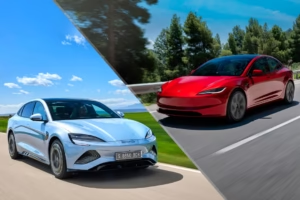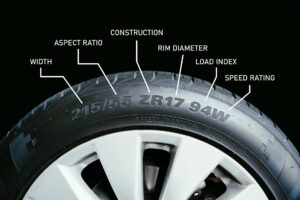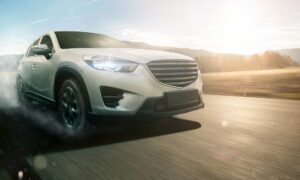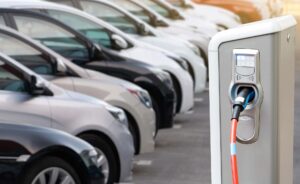As the quest for sustainable transportation intensifies, the fastest-charging EVs are taking center stage. This article explores these revolutionary EVs, showcasing how they are reshaping our travel dynamics. We’ll dive into the cutting-edge technology propelling these vehicles to charge at unprecedented speeds and highlight the top models leading the charge. Discover how these fastest-charging EVs are not just a leap in technology, but a giant stride towards an eco-friendly future.
How Fast-Charging Is Changing the Landscape of Electric Mobility
The advent of fast-charging technology is revolutionizing the electric vehicle (EV) industry, reshaping perceptions of electric mobility. This breakthrough addresses a crucial barrier to EV adoption – lengthy charging times. With rapid-charge EVs, the convenience is significantly enhanced, aligning closer to the refueling times of traditional gasoline vehicles. This evolution is pivotal in making electric vehicles a practical choice for more consumers, thereby accelerating the transition to eco-friendly fast-charging and sustainable transportation.
Fast-charging stations are becoming more widespread, drastically reducing the time needed for EVs to recharge. This development is critical for long-distance travel, effectively eradicating the range anxiety that has long been a concern for potential EV buyers. Moreover, the integration of fast-charging infrastructure in urban and rural settings alike is making EVs more accessible and convenient for daily use, fundamentally altering the landscape of personal and public transportation.
Understanding Charging Speed Metrics
Electric vehicle charging speed is a key factor in the practicality of these cars. It’s typically measured in kilowatts (kW). The kW rating indicates the power level of a charger – the higher the number, the quicker an EV can be charged. For instance, a 50 kW charger will take longer to charge an electric car than a 150 kW charger. It’s essential to understand that the vehicle’s maximum charging rate and the charger’s maximum output determine the actual charging speed. Thus, a higher kW charger does not always translate to faster charging if the vehicle cannot support that rate.
Different cars have varying capacities for fast charging, largely due to their onboard charger capabilities and battery technology in EVs. Some of the latest models in the market boast impressively quick charging times, with certain vehicles capable of charging from 10% to 80% in just under 30 minutes. These advancements are primarily attributed to the development of high-capacity batteries and various improvements in EV charging technology.
The Future of Fast Charging: Developments on the Horizon
Looking ahead, the future of fast charging is incredibly promising. Innovations in battery technology and charging infrastructure are continuously underway, aiming to further reduce charging times. Research into solid-state batteries, for instance, suggests the potential for even faster charging rates without compromising battery life.
Additionally, efforts to standardize charging systems globally could significantly enhance the convenience of using EVs, paving the way for a truly interconnected and efficient electric mobility network. These developments not only promise to enhance the EV user experience but are also critical in driving the global shift towards more sustainable and environmentally friendly transportation options.
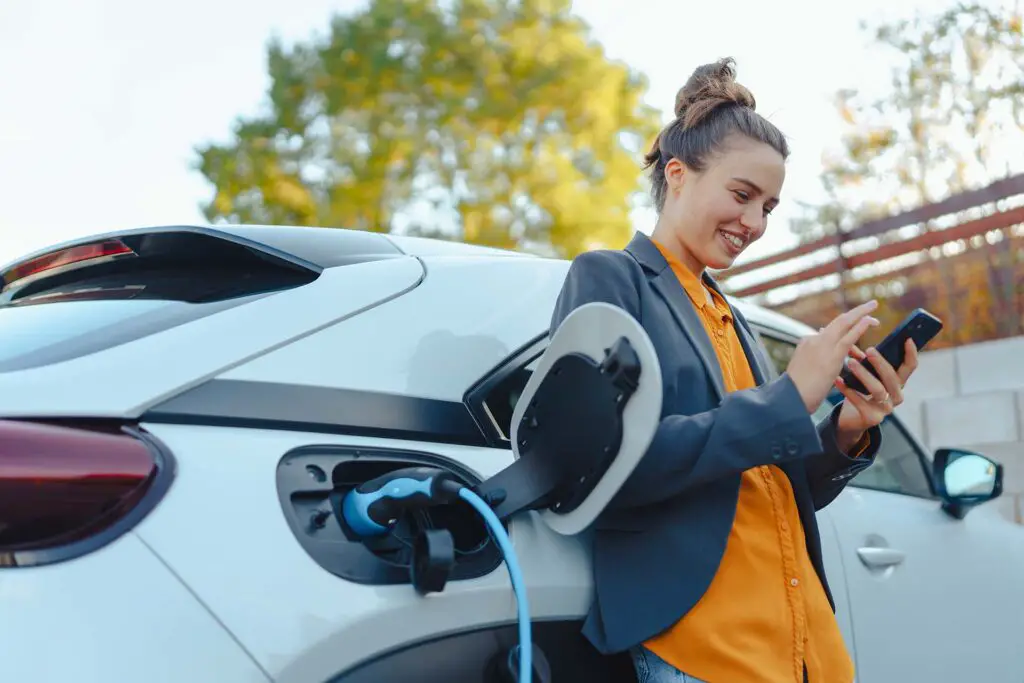
Top Fast-Charging Electric Vehicle – Lucid Air
What is the fastest-charging electric car? The Lucid Air has emerged as a frontrunner in the electric vehicle market, particularly in the realm of fast-charging capabilities. This groundbreaking EV not only promises luxury and performance – Lucid Air charging time is more than impressive.
Innovative Charging Technology You’ll Love
Lucid Air’s remarkable charging speed is a result of its state-of-the-art car battery technology and charging system. Equipped with a 900V+ electrical architecture, it allows for a faster flow of electricity compared to standard EVs. This high-voltage system enables the Lucid Air to utilize the most advanced public charging stations, significantly reducing the time needed to recharge. Here are some of the main Lucid Air charging specifications you should know:
| Maximum Charging Rate | 300 kW |
| Time to Charge from 20% to 80% | Approx. 15 minutes |
| Approximate Range Added Per Minute | Up to 20 miles |
| Compatible Charging Networks | Electrify America |
| Onboard Charger Capacity | 19.2 kW (AC charging) |
| Battery Capacity | Approx. 113 kWh |
| Estimated Range (Full Charge) | Up to 517 miles (EPA estimate) |
| Charging Interface | CCS (Combined Charging System) |
Charging Speeds and Performance
The Lucid Air boasts an impressive ability to charge at rates up to 300 kW. This translates to adding up to 20 miles of range per minute of charging under optimal conditions. The vehicle’s battery is designed to be efficient and long-lasting, ensuring that drivers can quickly recharge and get back on the road with minimal downtime.
Future Prospects for This Outstanding Vehicle
As the EV market continues to evolve, Lucid Air sets a high standard for charging efficiency. With continuous advancements in battery and charging technologies, we will likely see even more impressive achievements in this area. The focus on reducing charging times is not only about convenience – it’s a crucial step towards making EVs more accessible and practical for a broader range of consumers.
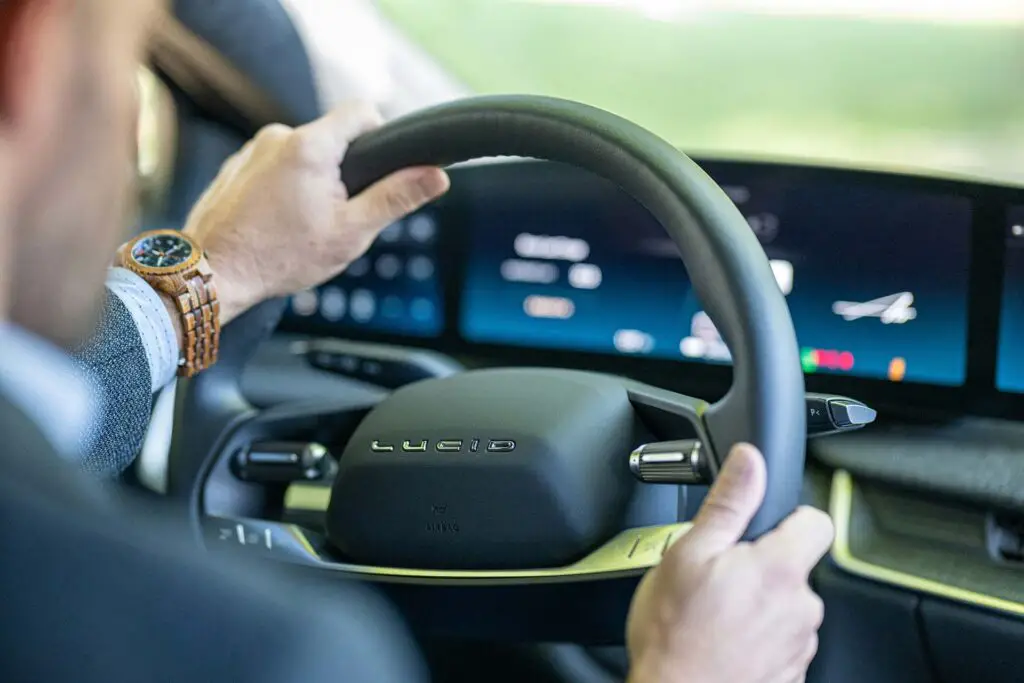
Kia EV6 – A New Era of Electric Vehicle Innovation
The Kia EV6 marks a significant milestone in the electric vehicle market, combining style, performance, and advanced technology. This car represents Kia’s ambitious leap into the future of electric mobility. As an epitome of innovation, the EV6 is more than just an automobile – it’s a bold statement in the evolving world of electric cars.
Cutting-Edge Design and Performance
The EV6’s design is a harmonious blend of aerodynamics and aesthetics, showcasing a sleek, modern look that sets it apart. Underneath its striking exterior lies an equally impressive performance capability. Designed on a dedicated EV platform, the EV6 offers a spacious interior, exceptional handling, and a smooth driving experience. Its low center of gravity, due to the battery placement, enhances stability and agility, making it a joy to drive. Here are some of the most important specifications of this car:
| Maximum Charging Rate | Up to 240 kW (DC Fast Charging) |
| Battery Capacity | Available in 58 kWh and 77.4 kWh options |
| Estimated Range (Full Charge) | Up to 300 miles (77.4 kWh model) |
| Time to Charge from 10% to 80% | Approx. 18 minutes (DC Fast Charging) |
| Onboard Charger Capacity | 10.9 kW (AC charging) |
| Charging Interface | CCS (Combined Charging System) |
| Power Output | Up to 320 horsepower (AWD model) |
| Acceleration (0 to 60 mph) | Approx. 5.2 seconds (AWD model) |
Advanced Technology and Sustainability
Kia’s commitment to sustainability is evident in the EV6. The car features eco-friendly materials, emphasizing Kia’s dedication to environmental responsibility. The use of recycled plastics and sustainable fabrics aligns with the growing demand for green vehicles. Technology-wise, the EV6 is equipped with cutting-edge features, including a high-performance battery system, ultra-fast charging capabilities, and a range of driver assistance systems. These innovations not only enhance the driving experience but also contribute to the car’s efficiency and safety.
Pioneering the EV Market
The vehicle’s combination of range, charging speed, and performance places it at the forefront of electric mobility. It caters to the needs of modern consumers who seek a reliable, high-performing, and sustainable vehicle. Kia’s venture into this new era with the EV6 is a testament to its vision and commitment to shaping the future of transportation, making it a landmark model in the rapidly evolving EV landscape.
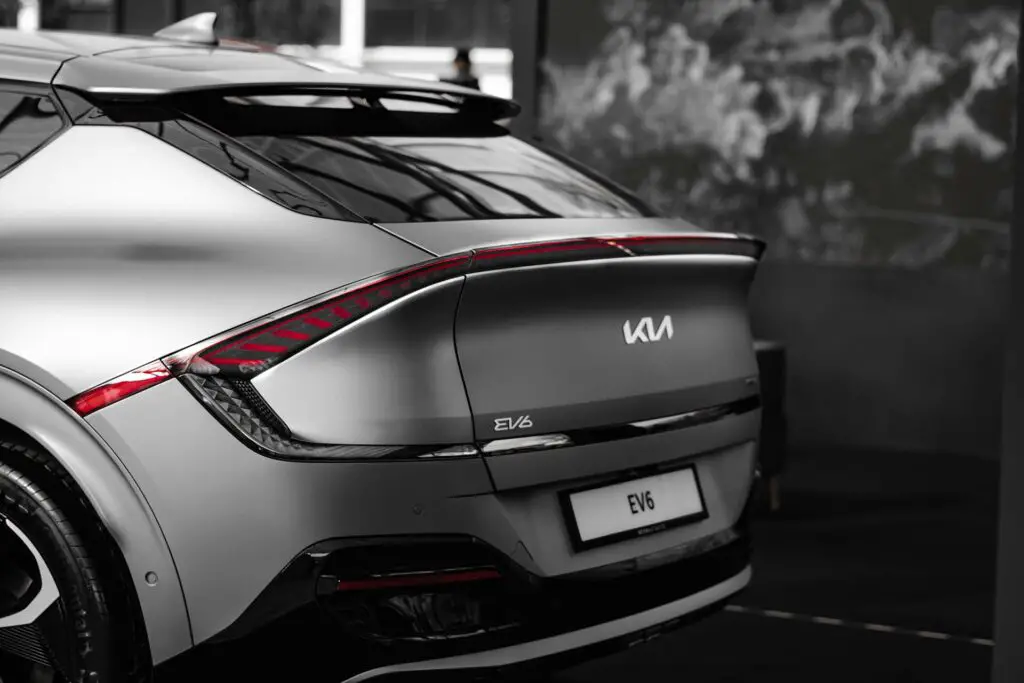
Hyundai Ioniq 6 – The Aerodynamic Electric Marvel
The Hyundai Ioniq 6, with its cutting-edge design, is more than just a standard electric vehicle. The car’s exterior is crafted for aesthetic appeal but also remarkable aerodynamic efficiency, contributing to its overall performance and range. Its sleek design isn’t just about looks; it’s a functional aspect that sets it apart in the market and makes it one of the best electric cars. This combination of style, efficiency, and technology makes the Ioniq 6 a significant addition to Hyundai’s electric lineup, reflecting the brand’s forward-thinking approach to automotive design and environmental responsibility.
The Ioniq 6’s aerodynamic design, with a drag coefficient of just 0.21, contributes significantly to its efficiency. It offers both RWD and AWD configurations, catering to different driving preferences and needs. The SE RWD model impresses with up to 361 miles of range on a single charge. Furthermore, its ultra-fast charging feature is a standout, capable of reaching 80% charge in merely 18 minutes with a 350-kW charger. Here’s a little bit more information on this remarkable model:
| Specification | Hyundai Ioniq 6 RWD | Hyundai Ioniq 6 AWD |
| Electric Motor | Single-motor, rear-wheel-drive | Dual-motor all-wheel-drive |
| Power Output | 168 horsepower | 320 horsepower |
| Torque | 258 pound-feet | 446 pound-feet |
| Battery | 77.4 kWh | 77.4 kWh |
The Technology Behind Fast Charging
Fast charging technology in electric vehicles (EVs) represents a significant leap in battery and charging infrastructure innovation. This rapid charging is primarily driven by advances in battery chemistry and design, allowing for quicker energy absorption without compromising battery life. Modern EV batteries use materials that can handle higher currents, reducing charging times. Thermal management systems in these batteries also play a critical role, ensuring that the batteries remain within safe temperature ranges during fast charging.
Furthermore, the development of high-capacity charging stations, capable of delivering large amounts of power efficiently, is crucial. The integration of smart charging networks, which manage the power distribution based on grid capacity and vehicle needs, also contributes to the effectiveness of fast charging. As a result, EVs can now be charged in a fraction of the time compared to earlier models, making them more convenient for everyday use.
Future Trends in EV Charging Technology
The future of EV charging technology is heading towards even faster and more efficient systems. Continuous improvements in battery chemistry, such as the development of solid-state batteries, promise shorter and shorter charging times and longer battery life. Upcoming EV models are expected to incorporate these advancements, potentially reducing charging times to levels comparable to conventional fueling.
Wireless charging technology is also on the horizon, aiming to provide even greater convenience by eliminating the need for physical connectors. Additionally, the expansion of ultra-fast charging networks is expected to make long-distance EV travel more feasible.
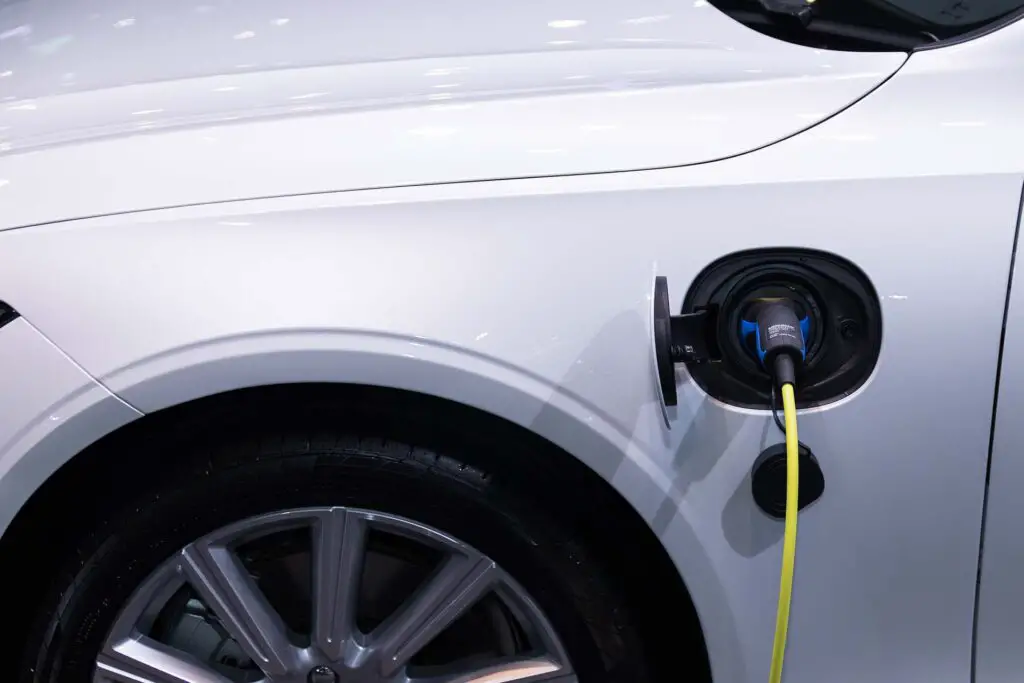
We’re Heading Into the Future With EV Fast-Charging
Fast-charging technology is a pivotal aspect of the EV industry, crucial for enhancing user convenience and facilitating wider adoption. As EV technology progresses, the focus on developing quicker, more efficient charging solutions is paramount. The future outlook for the EV market is promising, with advancements in charging technology expected to significantly reduce charging times, paralleling the convenience of traditional fuel vehicles.
This evolution will likely boost the appeal of EVs, leading to a more sustainable and technologically advanced automotive landscape. This progress is crucial in addressing range anxiety, making EVs more practical for long-distance travel and daily use. The integration of fast-charging infrastructure into urban and rural areas will further ensure accessibility and ease of use, making EVs an increasingly viable option for a broader range of consumers.

